- Your cart is empty
- Continue Shopping

Product
Introduction: Temonat, featuring the active substance Temozolomide, is a crucial chemotherapy medication that has significantly advanced the treatment landscape for certain brain tumors. As an oral alkylating agent, Temonat plays a key role in the management of malignant gliomas, particularly glioblastoma multiforme, a type of aggressive brain cancer.
Mechanism of Action: Temozolomide, the active ingredient in Temonat, exerts its antitumor effects through a unique mechanism. It undergoes spontaneous chemical conversion in the body to produce a reactive compound that alkylates DNA, inducing damage to the DNA strands. This DNA damage interferes with the cancer cells’ ability to replicate and divide, ultimately leading to their destruction.
Clinical Applications: Temonat is primarily used in the treatment of:
- Glioblastoma Multiforme (GBM): Temonat is a standard component in the treatment regimen for glioblastoma multiforme, a highly aggressive and malignant form of brain cancer.
- Anaplastic Astrocytoma: Temonat is also utilized in the management of anaplastic astrocytoma, a grade III glioma characterized by rapid growth and infiltrative behavior.
Administration and Dosage: Temonat is administered orally in the form of capsules and is usually taken on an empty stomach, at least one hour before or two hours after a meal. The dosage and treatment duration are determined by the treating oncologist based on the specific type and stage of brain cancer. Compliance with the prescribed schedule is crucial for optimizing treatment outcomes.
Considerations and Side Effects: While Temonat has demonstrated efficacy, it is essential to consider potential side effects and closely monitor patients during treatment. Common side effects may include nausea, vomiting, fatigue, and myelosuppression (decreased blood cell counts). Regular blood tests are often conducted to assess blood cell counts and liver function. Patients are advised to report any unusual symptoms or side effects promptly.
Clinical Trials and Efficacy: The approval of Temonat was supported by clinical trials demonstrating its effectiveness in extending survival and improving outcomes in patients with glioblastoma multiforme. The regimen involving Temozolomide as part of standard care has become a cornerstone in the multidisciplinary approach to managing malignant brain tumors.
Impact on Patients’ Lives: For many patients diagnosed with aggressive brain tumors like glioblastoma multiforme, Temonat represents a crucial component of their treatment plan. While not curative, Temonat plays a pivotal role in extending survival and improving quality of life. It offers a valuable tool in the fight against these challenging and often devastating forms of cancer.
Conclusion: Temonat, driven by the active substance Temozolomide, underscores the progress in chemotherapy for brain tumors. Its targeted mechanism of action and proven efficacy have positioned it as a key player in the comprehensive approach to managing malignant gliomas. As research continues, Temonat and similar agents contribute to advancing the landscape of brain cancer care, providing new possibilities and renewed hope for individuals facing these formidable diagnoses.
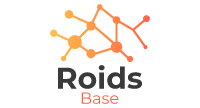

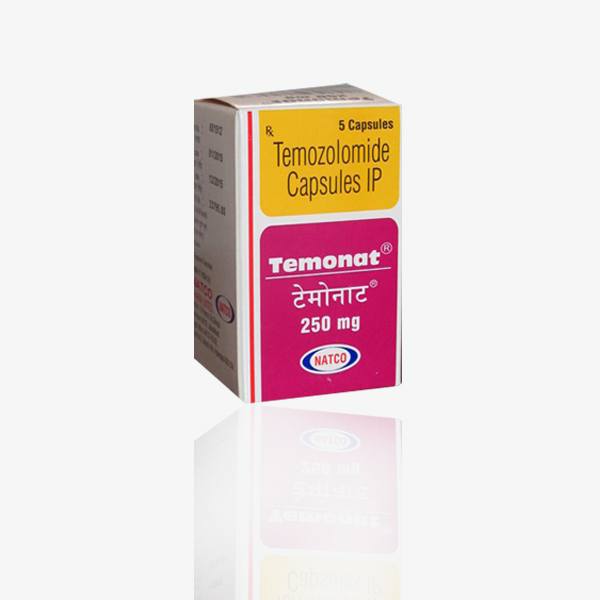
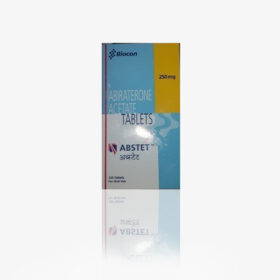
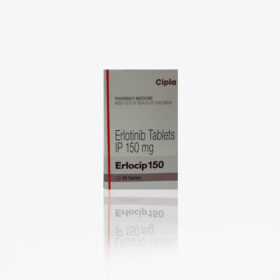



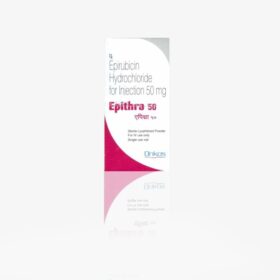
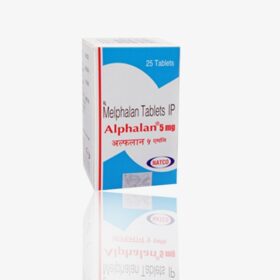
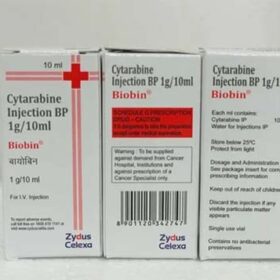



Reviews
There are no reviews yet.